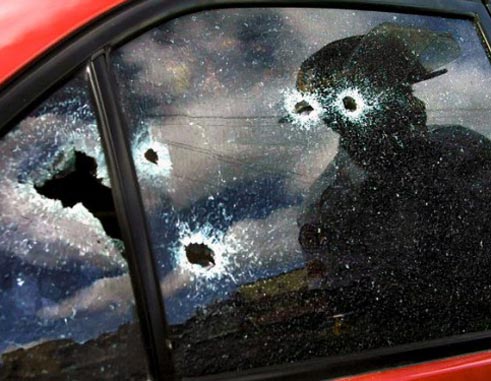IF ever there is a time for the authorities to test the one- year- old Anti-Gang Act it is now.
Everyone agrees that the recent spate of gun violence in the city is gang related.
Gang related violence appears to be one aspect of crime that politicians of different political persuasions here seem to agree on. Yet it seems that there is no rush, no enthusiasm to test the strength of this piece of legislation in court.
Is the DPP’s Office ready to take on those crafty criminal attorneys in a court of law over this piece of legislation?
The Act is wide ranging in its scope. It is to prohibit gangs, gang-related activity and connected purposes. It describes what a gang is. It has a definition for gang member and interprets the term ‘gang-related activity’.
It speaks to the participation in gang-related activity to mean joining a gang, being a gang member or a gang leader, recruiting persons to participate in gang activity, preventing another person from ending his or her gang membership, or affiliation and contributing to gang activity.
Police investigators know who the various gang members are. They may not know all of them but they have sufficient intelligence to identify them as being in a gang.
This then begs the question: Why is it that they have not arrested and charged some of those gang members under the anti-gang legislation?
The Act makes it clear that a person who, by act or omission, knowingly participates in gang-related activity commits an indictable offence.It then pronounces a hefty fine of $300,000 and imprisonment of 20 years on conviction on indictment.
In other words, it provides for the removal of gang members from society for a very long time. As noted earlier, both the politicians and law enforcement have said that most, if not all, of the shootings taking place in the country, particularly in Castries, are gang related. If they are so convinced why is it taking them so long to round up the gang members they know and charge them under the Anti-Gang Act?
According to the Act in a prosecution for an offence it is not necessary to prove a gang actually facilitated or committed an offence; that the participation of an accused actually enhanced the ability of a gang to facilitate or commit an offence; that the accused knew the specific nature of any offence that may have been facilitated or committed by the gang or the accused knew the identity of any of the persons who constitute the gang.
The Anti-Gang Act goes further and states that in determining whether an accused participates in any gang-related activity the Court may consider, among other factors, whether the accused uses a name, word, symbol or other representation that identifies, or is associated with a gang.
The Court may also consider whether the accused frequently associates with any of the persons who constitute the gang, engages in activities at the instruction of any of the persons who constitute the gang, among other things.
A reading of the legislation appears to make it easy for the hauling of a gang member before a court. For instance, Section four, which deals with committing and preparing to commit an offence for the benefit of a gang, states that a person who has in his or her possession, custody or control a bullet-proof vest, firearm, ammunition, equipment, instrument, material or any device, whether lawfully obtained or not, with the intention that such bullet-proof vest, firearm, ammunition, equipment, instrument, material or device may be used by him or her or any other person in committing an offence for the benefit of, at the direction of or in association with a gang, commits an offence and is liable on conviction on indictment to a fine of $100,000 and to imprisonment for 10 years.
It would be interesting to hear the reason or reasons why law enforcement has not hauled gang members before the courts under the Anti-Gang Act which has been sitting on the shelves for a year?















